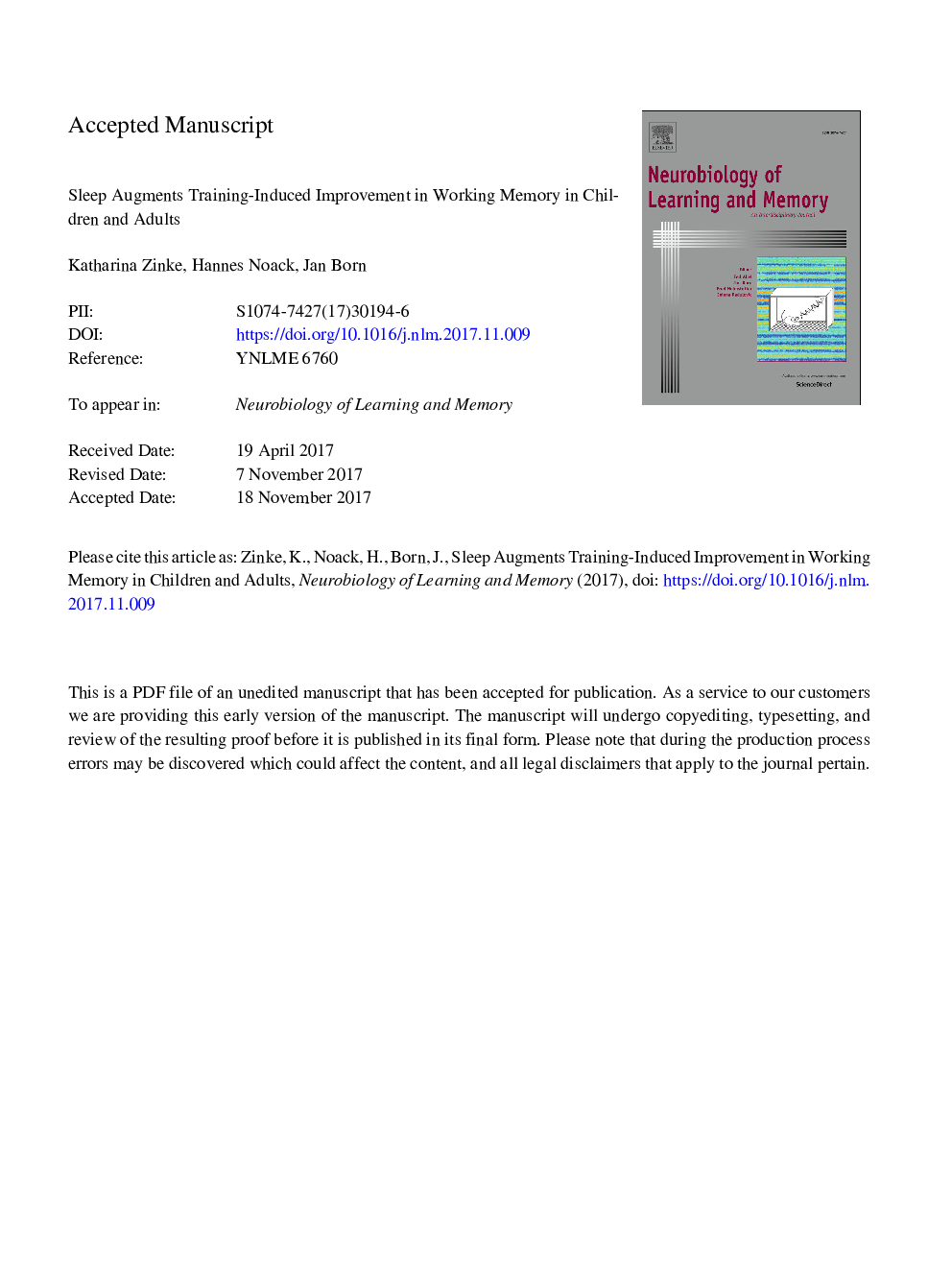| Article ID | Journal | Published Year | Pages | File Type |
|---|---|---|---|---|
| 7298916 | Neurobiology of Learning and Memory | 2018 | 35 Pages |
Abstract
Sleep plays an important role in forming procedural motor memories. Whether sleep plays a similar role for cognitive procedures related to working memory function, is not yet clear. Here we investigated if sleep enhances training-induced improvements in working memory in children. Because children show more intense slow wave sleep (e.g., higher slow wave activity, more spindles) we expected sleep-related improvements to be greater than in adults. Twenty-four children (10-12â¯years) and 24 adults were trained on three sessions of an n-back task comprising three runs of blocks (6 blocks with 20 responses each) presented in ascending levels of difficulty. The sessions were separated by â¼12â¯h. Between the training sessions, participants first spent a full night sleeping and then a normal day awake (evening groups) or vice versa (morning groups). We analyzed performance on the whole blocks and, to estimate the individual's optimum performance, on only the first 10 trials of each block. Results showed a distinct gain in training-induced working memory performance with post-training overnight sleep compared to wakefulness. The sleep-induced gain was revealed only for performance on the first block-halves and, in absolute terms, was closely comparable in children and adults. Taking differences in working memory performance into account sleep-dependent gains expressed as percentages of baseline performance were, however, greater in children than in adults. The data thus indicate that sleep after training facilitates cognitive procedures related to executive control, i.e., the ability to operate sequences of events in working memory, with a particular benefit in developing populations.
Keywords
Related Topics
Life Sciences
Neuroscience
Behavioral Neuroscience
Authors
Katharina Zinke, Hannes Noack, Jan Born,
